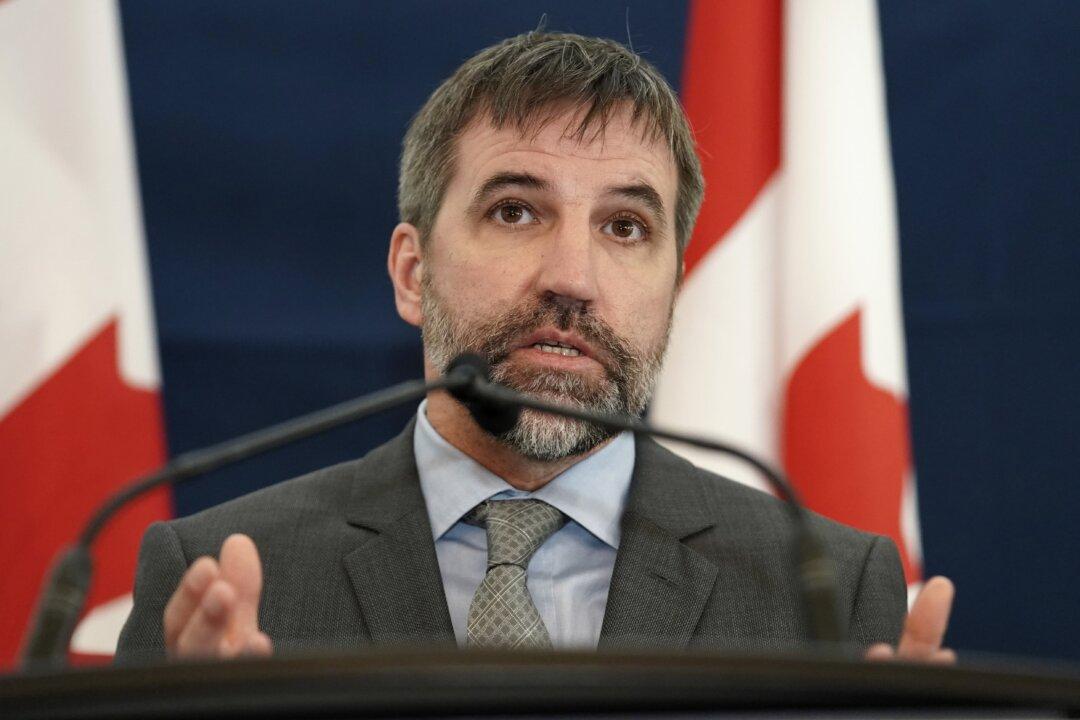Canadians should be less concerned about paying the carbon tax and more about footing the bill for rebuilding after natural disasters caused by climate change, says Environment Minister Steven Guilbeault.
“When we talk about the cost of measures to address climate change, we have to realize that Canadians are paying a very high price tag for the impacts of climate change,” the minister said on Sept. 13 while attending the Liberal caucus retreat in London, Ontario.





